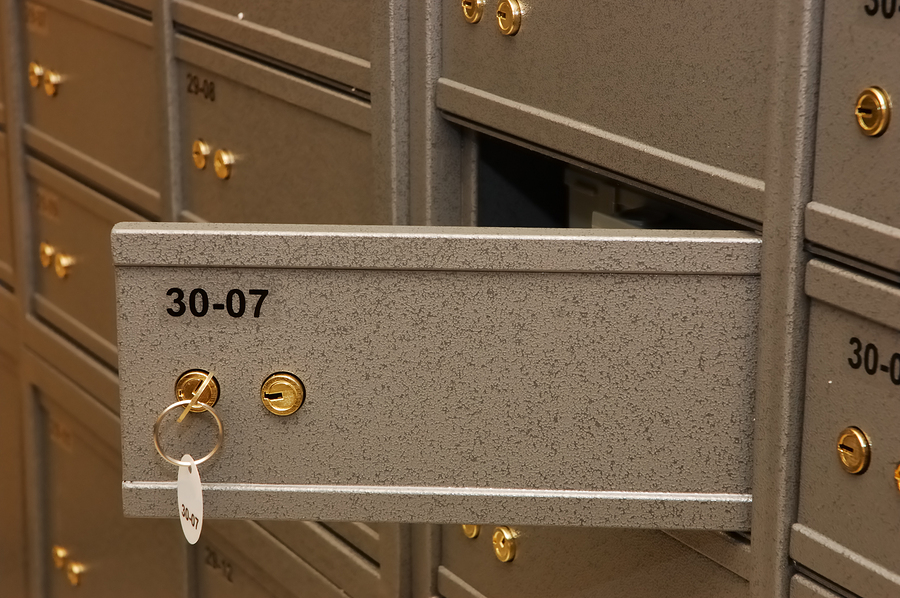Whether you want a safe place to stash heirloom jewelry from your great-great-grandmother, a treasured collection of rare coins, stacks of savings bonds or your last five years’ worth of tax returns, a safe deposit box at the bank is a better choice than a home safe for a number of reasons.
- A safe deposit box is a better value. Even the cheapest home safe is going to cost you upwards of $100 dollars. A safe deposit box, on the other hand, typically rents for $15 to $500 a year depending on size. Unless you’re storing large valuables, the up-front cost of renting a safe deposit box is going to be less than purchasing a residential safe.
- A safe deposit box offers better protection from fire. Fireproof home safes are even more expensive than their basic counterparts are—and there are significant limits to how much actual protection they offer. For example, some fire resistant residential safes still allow contents to reach 350 degrees. While that might protect paper documents, it’s more than the heat required to damage items like computer disks and 35mm slides. Most only offer 30 minutes of protection as well—not enough if it takes emergency responders longer to extinguish the blaze. Fire is not an issue for a safe deposit box, however. Located in a sealed bank vault, they offer the ultimate protection for your items.
- A safe deposit box offers better protection from thieves. While the Center for Problem-Oriented Policing notes that the number of reported single-family home burglaries nationwide has declined 32 percent since 1990, they’re still increasing in some metropolitan areas—and a home safe is an easy target for a would-be thief on the prowl. Banks, on the other hand, are more secure than the average home. Even when a robbery occurs, few of the criminals bother with the safe deposit boxes. According to the FBI, only 18 of the 5,014 bank robberies that occurred nationwide in 2011 involved the safe deposit vault.
- Home safes are notoriously easy to “crack.” Just watch one episode of A&E’s Storage Wars and you’ll see how easy most residential safes are to break into. And anyone can learn to do it. A quick Google search of “how to crack a home safe” returned more than 43,700,000 written and video tutorials. Safe deposit boxes, on the other hand, are housed within a bank vault, which is much more difficult to break into.
IMPORTANT: While bank robberies involving safe deposit boxes are rare, it’s still wise to add a rider to your homeowner or renter’s insurance policy to cover the items you store within one. The minimal cost you’ll incur is preferable to running the risk of an unforeseen loss.
